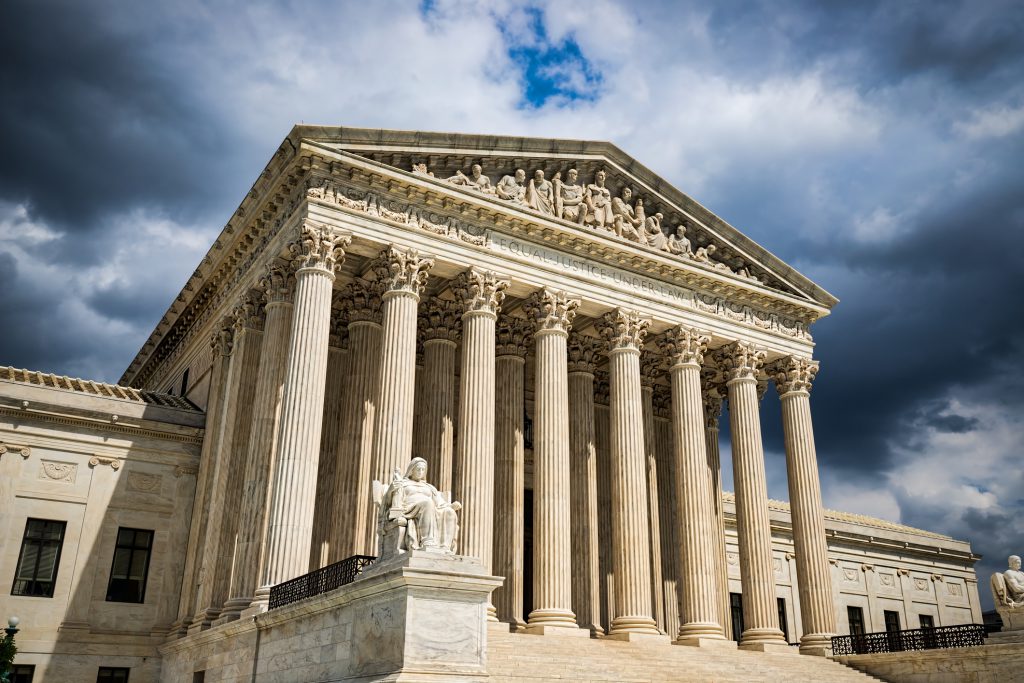The United States Supreme Court is set to begin hearing oral arguments via teleconferencing starting May 4. The Court will hear a small number of previously postponed cases on May 4, 5, 6, 11, 12 and 13. The Justices and counsel will all be participating remotely to comply with social distancing and public health protocols implemented to slow the spread of COVID-19.
The 10 cases to have oral arguments are:
18-9526, McGirt v. Oklahoma
19-46, United States Patent and Trademark Office v. Booking.com B.V.
19-177, Agency for International Development v. Alliance for Open Society International, Inc.
19-267, Our Lady of Guadalupe School v. Morrissey-Berru, and 19-348, St. James School v. Biel
19-431, Little Sisters of the Poor Saints Peter and Paul Home v. Pennsylvania, and 19-454, Trump v. Pennsylvania
19-465, Chiafalo v. Washington
19-518, Colorado Department of State v. Baca
19-631, Barr v. American Association of Political Consultants, Inc.
19-635, Trump v. Vance
19-715, Trump v. Mazars USA, LLP, and 19-760, Trump v. Deutsche Bank AG
The cases cover a wide variety of subject matters; some involve Congressional access to the President’s financial records, while a case involving Booking.com discusses if a common word like “booking” can be trademarked by adding a site domain suffix to it.
The Supreme Court expects to provide a live audio feed of the arguments, an unprecedented first for the Court. The Supreme Court already makes oral arguments publicly available, typically at the end of the week; the availability of real-time audio is unprecedented. The oral arguments will most likely not include video because the Supreme Court opposes cameras in the courtroom. While Supreme Court arguments are usually open to the public, space is limited, and attendees can often wait in line for hours for significant cases.
No details about how the teleconference would be hosted, or who would have access, were available at the time of publication. Due to the uncertainty of how long shelter-in-place orders will remain in place, the Supreme Court could hold additional oral arguments via teleconferencing than the cases set for May.
